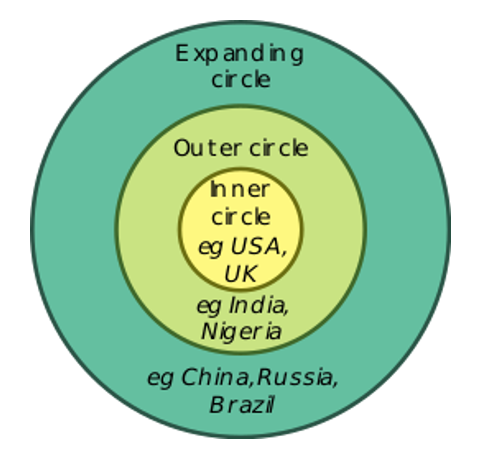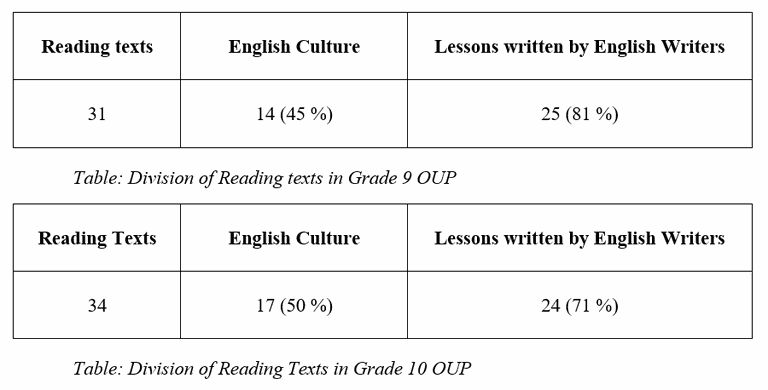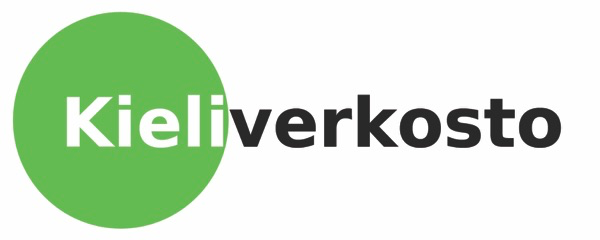Decolonizing English Language Pedagogy: A Study of Cultural Aspects in English Language Coursebooks and Teachers’ reflections in Pakistan
Julkaistu: 1. joulukuuta 2021 | Kirjoittanut: Syed Waqar Ali Shah
English Language Teaching as a ‘Cultural Project’
The idea that language teaching is neutral and devoid of socio-political mediation has been questioned in mainstream applied linguistics and classes are now thus seen as ideological and cultural sites where English language learners’ identities are constructed and negotiated (Canagarajah, 1999; Pennycook, 2001; Shah & Pathan, 2016). In the process of language teaching, textbooks are deployed as an important means to promote specific ideologies. Canagarajah (1999) argues that English language classrooms do not merely transmit grammar rules to the learners as generally perceived by the public, but rather have an ideological implication since they are shaped by sociocultural and institutional forces. Moreover, classrooms are a site where the agendas of different interest groups are set and negotiated. In developing countries, these agendas serve the interests of the colonial history and culture (Philipson, 1992; Hsu, 2017).
Pakistan as a context of the present study is diverse in terms of language (7.08 % Urdu, 38.78 % Punjabi, 14.57 % Sindhi, 18.24 % Pashto, 3.02 % Balochi, 0.17 % Kashmir, 12.19 % Seraiki, 2.44 % Hindko, 1.24 % Brahavi and 2.26 % others) as shown in census 2017 (Pakistan Bureau of Statistics, 2017). Despite this diversity, English and Urdu languages enjoy the higher status in the country since the beginning i.e., 1947. The educational system in the country is split across private and public sector with different curriculum and pedagogical design. Coleman (2010) categorized Pakistani educational system into four groups: a) private elite English medium schools b) private non-elite English medium schools c) government Urdu medium schools d) religious seminaries (madrasa). Later, Rahman (2002) revised ‘government Urdu-medium Schools’ as ‘government Urdu/Vernacular medium schools’ since Sindhi and Pashto are also used as a medium of instruction in Sindh and Khyber Pakhtunkhwa provinces of Pakistan respectively.
English language teaching (ELT) in Pakistan is an ideology-driven practice. It propagates ‘specific ideologies’ through teaching materials used in classes. English teaching materials according to Saigol (1995) & Rahman (2002) promote English culture and national values in both elite private and government-run schools across the country respectively.
The present study, drawing on Fairclough’s Critical Discourse Analysis (CDA) (2003) framework and Mignolo’s (2009, 2011) decolonial option, aims to investigate the cultural discourse(s) of colonialism in English language teaching in elite private schools in Pakistan. The analytical devices imported from the CDA framework for the purposes of the present study include a) presupposition/assumption, b) identity, c) representation, d) comparison and contrast, e) foregrounding, f) inclusion/exclusion, g) difference, and h) Universalization. The data for the present study come from two sources: a) Coursebooks and b) Teachers. The English language coursebooks, which are prescribed as one of the recommended readings in elite private schools in Pakistan, are produced by Oxford University Press (OUP) and represent the authorship and cultural hegemony of the inner circle in Kachru’s (1985) sense as illustrated in the following picture:

Figure 1. Kachru's (1985) Three Circles of Spread of English
On the other hand, the government-run schools follow the textbooks which are produced by provincial textbooks boards in the country. These textbooks represent state-centric ideology and national culture (Rahman, 2011). The study also includes the teachers’ reflections on the coursebooks to see if they perceive the textbooks as carriers of cultural discourses of colonialism.
Coloniality in English Language Teaching (ELT) and ‘decolonial option’
The current existing English language teaching practices originated from long histories of global empire and capitalist victory (Hsu, 2017; Thiongo, 1986). This colonial legacy involving English language instruction and its various aspects has gained a critical concern in the present debates in language studies (Canagarajah, 1999; Kumaravadivelu, 2016; Mahboob, 2019). According to Pennycook (1998), the central ideologies of current English language teaching have their origins in the cultural constructions of colonialism. Pennycook (2007), noting the relation between ELT and colonialism, argues that one of the reasons for a close relation between the two is the cultural makeup of the students in English language classes, since English is deeply rooted in the history of British and American empires.
However, there are several instances in reports from the colonial period that eulogize English language in the colonized world. For instance, Charles Grant’s argument related to promotion of English language reads as:
‘…the first communication, and the instrument of introducing the rest, must be the English language. This is a key which will open to them a world of new ideas, and policy along might have impelled us, long since, to put it into their hands.’ (Bureau of Education, 1920, p. 83)
A similar attitude was adopted in Macaulay’s (1835) minutes which considered ‘white man’s burden’ to educate the Indians who were thought to be barbarians, backward and uncivilized. In 1888, Commission of Indian Affairs, Atkins declared that English would educate the Indians helping them come out of their barbarous ways, further portraying English as the first step towards ‘civilization’. Omi and Winant (2014) called this declaration a process of racialization which deeply emanated from discourses of colonialism and colonial language policies. Moreover, many other scholars view this declaration as a step towards the imposition of colonial English as a technique to establish global empire (Canagarajah, 1999; Hsu, 2015; Kumaravadivelu, 1999, 2003; Motha, 2006, 2014; Pennycook, 1998; Phillipson, 1992). In the context of Pakistan, this continuity of the empire can be seen in the English language teaching practices and materials employed in elite private schools across the country that follow the ‘Cambridge System’ (Rahman, 2011).
Mahboob (2019) notes that of all the myths that were created in colonial times, the myth that we live in a postcolonial phase of history is the most oppressive one. It is because the discourses of colonialism are the foundation of economic, political and cultural practices worldwide, and they shape the way we perceive the world. These discourses of colonialism are shaping our ways of being, knowing and doing. He further argues that ‘postcolonialism begins when colonization ends, and the fact is colonization has not ended yet’. According to Mignolo (2011), ‘decoloniality’ has its historical grounding in the Bandung Conference of 1955 which included 29 countries from Asia and Africa seeking a common ground and vision i.e., decolonization which simply delinked itself from the two western macro-narratives – capitalism and communism. Fanon’s wretched of the Earth was published in 1961 as an important text to decolonize colonial knowledge and practices in a world where the colonialism prevailed. The present study is a similar attempt in the field of English as a foreign language in the Pakistani context.
Results of the Present Study
The findings of the study are based on my master’s thesis produced and submitted to Mehran University of Engineering and Technology, Jamshoro Pakistan in 2016.
Discourses of Colonialism in Coursebooks
The coursebooks selected for the present study were taught in grades 9 and 10 in an elite private school in Pakistan. The texts relate to different genres, including media and information articles, travel writing, memoirs, fiction and poetry, and refer to countries such as Cuba, Eastern Russia, China, Kenya, Pakistan, South Korea, Britain, USA, and Australia. However, the texts that reference the culture of English-speaking countries – the colonials – are dominantly present. For instance, the following tables illustrate the division of lessons in percentages:

The textbooks carry the dominant ideological meanings rooted in English society which are reinforced through pedagogical practices in EFL classrooms through these teaching materials. For instance, the OUP grade-9 textbook inculcates the values associated mostly with Christianity – a dominant religion in the west. The following lines are from the textbook:
‘Dear Grandpapa, ‘he wrote, ‘I am writing you a letter. I wish you a Merry Christmas and I hope God will give you all sorts of good things.’ (OUP-9, p. 62)
‘Each year I decorate a Christmas tree, with trinkets from Bohari Bazar, Germany, Japan.’ (OUP-9, p. 72)
Religion is closely connected with a person’s identity. In order to learn more about the underlying ideological load of the sentences, we need to compare it with the Pakistani society where Islam is an official religion of the country and dominantly present in the society. Coming across Christianity in English Language texts can be conflicting for the learners in Pakistan who practice Islam in their daily life. The Oxford English language books promote religious values to the learners without considering their affiliation with Christianity as a religion. Christian population in Pakistan forms 1.27 % of the total population as noted in a recent census (Bureau statistics of Pakistan, 2017). In addition to religion, the OUP textbooks show a bias against non-white races, especially the blacks. The following lines, taken from OUP grade 10, show such an instance:
The white boy also has a stack of Tarzan cards. The black boy says that we can play a game in which we will win Tarzan cards from each other. The white boy keeps winning and gets to keep both cards each time. (OUP-10, p. 31)
The lines can be understood from a representational point of view. Fairclough (2003) mentions that Critical Discourse Analysis (CDA) explores social and political contexts in order to emancipate ideologies, hegemony, dominance and social powers. The lines above reflect racial discrimination against non-whites, which is one of the ideological agendas promoted through English language teaching. ‘The black boy loses the game!’. The whites are represented as ‘winning’ in all aspects of life.
Moreover, OUP textbooks for grades 9 and 10 contain lessons attaching higher values with English language & literature. Many lessons present in the selected textbooks are written by English writers, including Shakespeare, D. H. Lawrence, Percy Bysshe Shelley, H. G. Wells, Charles Dickens and many others. These OUP coursebooks try to bring learners closer to English literature so that they can understand English culture, lifestyles, customs and traditions. To fulfill this aim, English language and literature are presented as symbols of progress and prestige. The following excerpts from the OUP textbooks show how the Harry Potter series is promoted:
With advance sales of 350,000 on Amazon UK and delivery planned for 500,000 copies UK-wide, marketing hype had forecast that HP6 would be the Books sensation of All Time. In 390 stores throughout UK, the chain store W.H Smith was selling 13 copies per second, in comparison with the previous sales record of 8 copies 45 per second…. Yes, you’ve guessed it, HP5 Harry Potter and the order of the Phoenix. (OUP-9, p. 21)
In addition to instances from the OUP textbooks, the following section presents the reflections of English language teachers teaching these coursebooks in Pakistan.
Teachers’ Reflections on Cultural discourse(s) of Colonialism in English Coursebooks
In a semi-structured interview with the teachers, 6 out of 10 shared that they encounter cultural content related to English society and its values, social practices, food, norms, lifestyles and personalities more dominantly when compared with the other local and global cultures. According to them, the textbooks also reflect some content that relates to Pakistani society but mostly reproduce the dominant voice i.e., the colonial past and present. They showed a concern over this excessive body of cultural knowledge which does not seem compatible with the learners’ existing local identities, since Pakistan comprises diverse local cultures, ethnic groups, religions, sects, and linguistic groups. However, 4 out of 10 participants seemed to prefer the cultural knowledge in the textbooks that was related to English society. These teachers opined that it is natural that when we teach a language, the culture associated with it is present. According to them, there was no harm in exposing learners to English culture when teaching them English as a foreign language.
Conclusion
This study situated in Pakistani context aimed at investigating the dominant cultural discourses of colonialism in English language teaching materials and teachers’ reflections on those textbooks. The findings of the study show that English course books in elite private schools represent English culture in the form of traditional norms and values, social practices, religion, ideology, and eulogy for English as a foreign language and English literature. As a result, local identities of learners are backgrounded, excluding them from the larger social picture portrayed in the teaching materials. Moreover, these identities are seen as conflicting with the dominant social and cultural values because of dominant colonial content representing ‘English’ as a universally accepted norm. This study, therefore, suggests decolonizing such existing content in English coursebooks in Pakistan and including the diverse local and global cultures, so that the learners can de-familiarize with the western macro-narrative embedded in colonial history, develop a sense of self, and get to know the diverse voices that exist in the global context.
Waqar Ali Shah is a doctoral researcher at the Center for Applied Language Studies (CALS), University of Jyvaskyla, Finland. His areas of interest include a) critical discourse analysis b) Foucauldian Discourse Analysis c) Official Politics of the texts and Knowledge e) Ideology and education. As a part of his doctoral research, he is working on English language textbooks analysis and teachers’ perceptions on the textbooks and national curriculum to see the discourses of otherness in English teaching materials used in government-run schools and colleges in Sindh province of Pakistan.
References
Canagarajah, S. (1999). Resisting Linguistic Imperialism in English Teaching. Oxford University Press.
Coleman, H. (2010). Teaching and learning in Pakistan: The role of language in education. Retrieved from the website of British Council, Pakistan: http://www.britishcouncil.org/pakistan-ette-english-language-report.pdf
Fairclough, N. (2003). Analysing Discourse: Textual Analysis for Social Research. Routledge.
GoP. (2017). Census-2017 | Pakistan Bureau of Statistics. Retreved from https://www.pbs.gov.pk/content/final-results-census-2017-0
Hsu, F. (2017). Resisting the Coloniality of English: A Research Review of Strategies.
Kachru, B. (1985). The Alchemy of English (Issue 1984). University of Illinois Press.
Kumaravadivelu, B. (2003). Beyond Methods: Macro-strategies for Language Teaching. In Beyond Methods: Macrostrategies for Language Teaching. Yale University Press.
Kumaravadivelu, B. (2016). The Decolonial Option in English Teaching: Can the Subaltern Act? TESOL Quarterly, 50(1), 66–85. https://doi.org/10.1002/tesq.202
Kumaravadivelu, B. (1999). Critical Classroom Discourse Analysis. TESOL Quarterly, 33(3), 453–484. https://doi.org/10.2307/3587674
Mahboob, A. (2019). The Myth of the Post-Colonial. 1–6. https://wemountains.com/05/08/1208/
Mignolo, W. D. (2009). Epistemic Disobedience, Independent Thought and Decolonial Freedom. Theory, Culture & Society, 26(8), 159–181. https://doi.org/10.1177/0263276409349275
Mignolo, W. D. (2011). Geopolitics of sensing and knowing: On (de)coloniality, border thinking and epistemic disobedience. Postcolonial Studies, 14(3), 273–283. https://doi.org/10.1080/13688790.2011.613105
Motha, S. (2014). Race, Empire, and English Language Teaching: Creating Responsible and Ethical Anti-Racist Practice (Multicultural Education). Teachers College, Columbia University.
Motha, S. (2006). Racializing ESOL Teacher Identities in U. S. K—12 Public Schools. TESOL Quarterly, 40(3), 495. https://doi.org/10.2307/40264541
Omi, M. & Winant, H. (2014). Racial Formation in the United States (3rd ed.). Routledge: Taylor and Francis Group
Phillipson, R. (1992). Linguistic Imperialism. Oxford University Press.
Rahman, T. (2002). Language, Ideology and Power : Language learning among the Muslims of Pakistan and North India. Oxford University Press.
Rahman, T. (2011). From Hindi to Urdu : a social and political history. Oxford University Press.
Saigol, R. (1995). Knowledge and identity : articulation of gender in educational discourse in Pakistan. ASR Publications.
Shah, S. W. A., & Pathan, H. (2016). Representation of Western Culture in O’ level English Language Textbooks. ELF Annual Research Journal, 18, 23–42.
Spivak, G. C. (1984). Can the Subaltern Speak? Columbia University Press.
Thiongo, N. (1986). Decolonizing the Mind. Heinemann.
